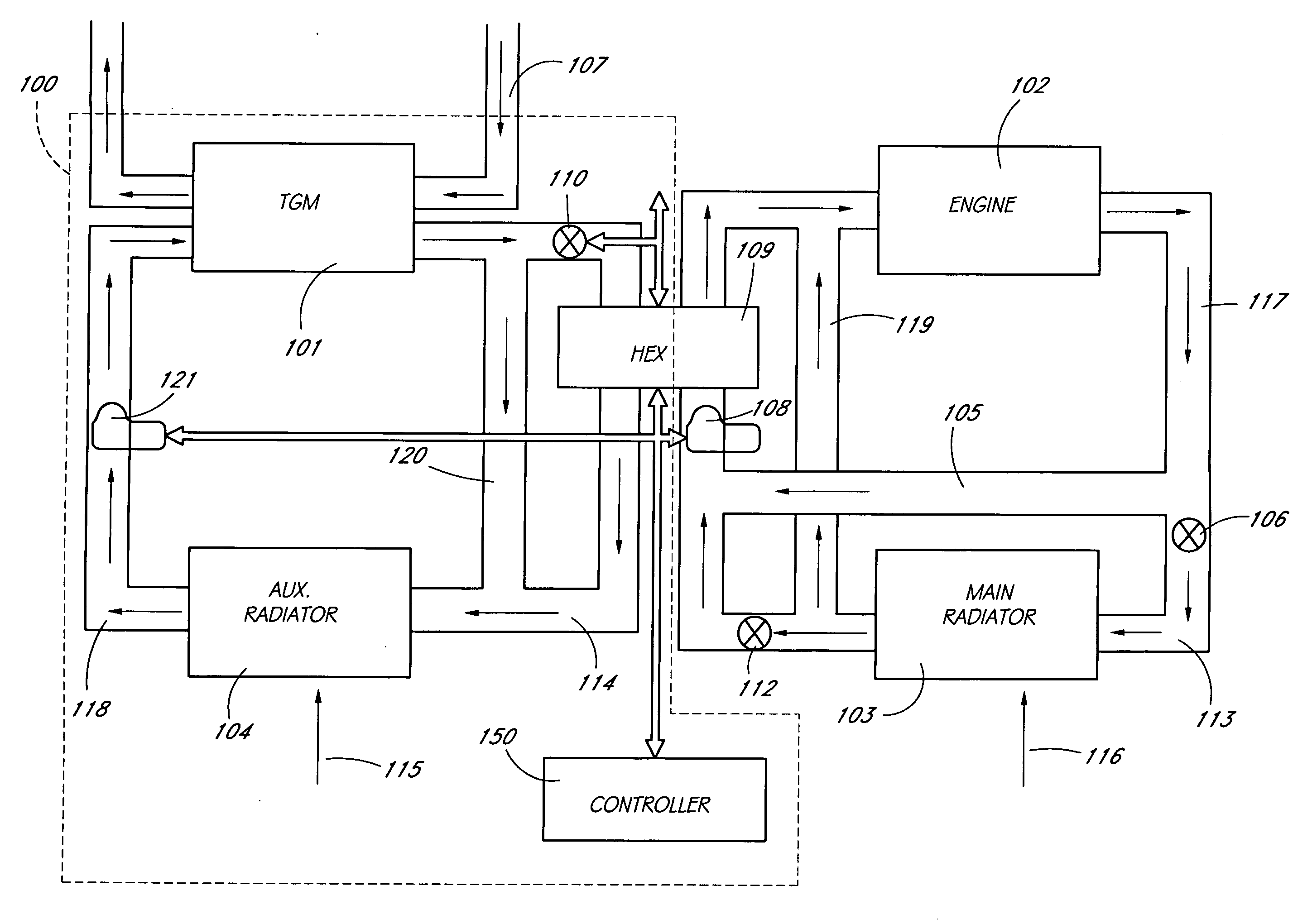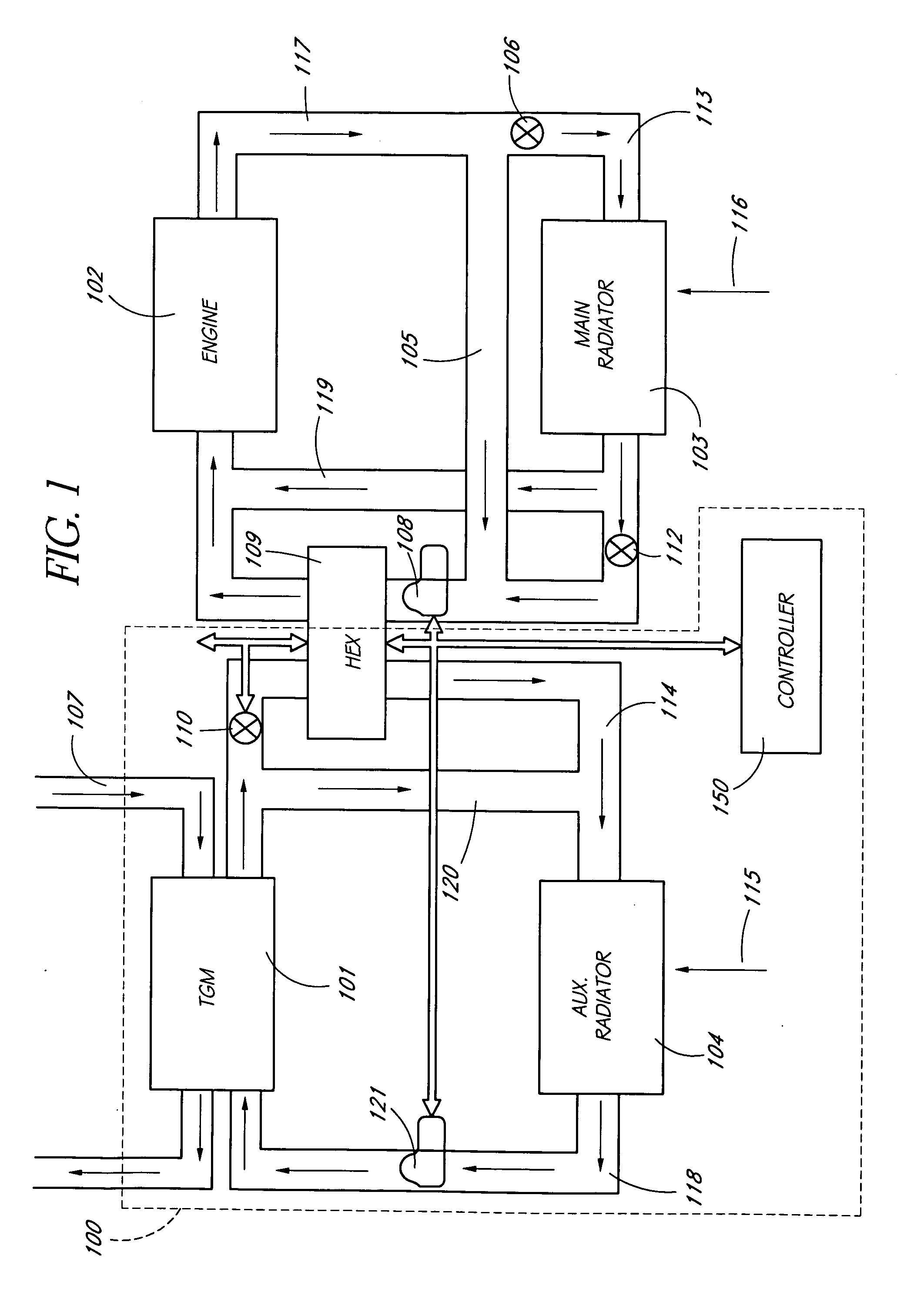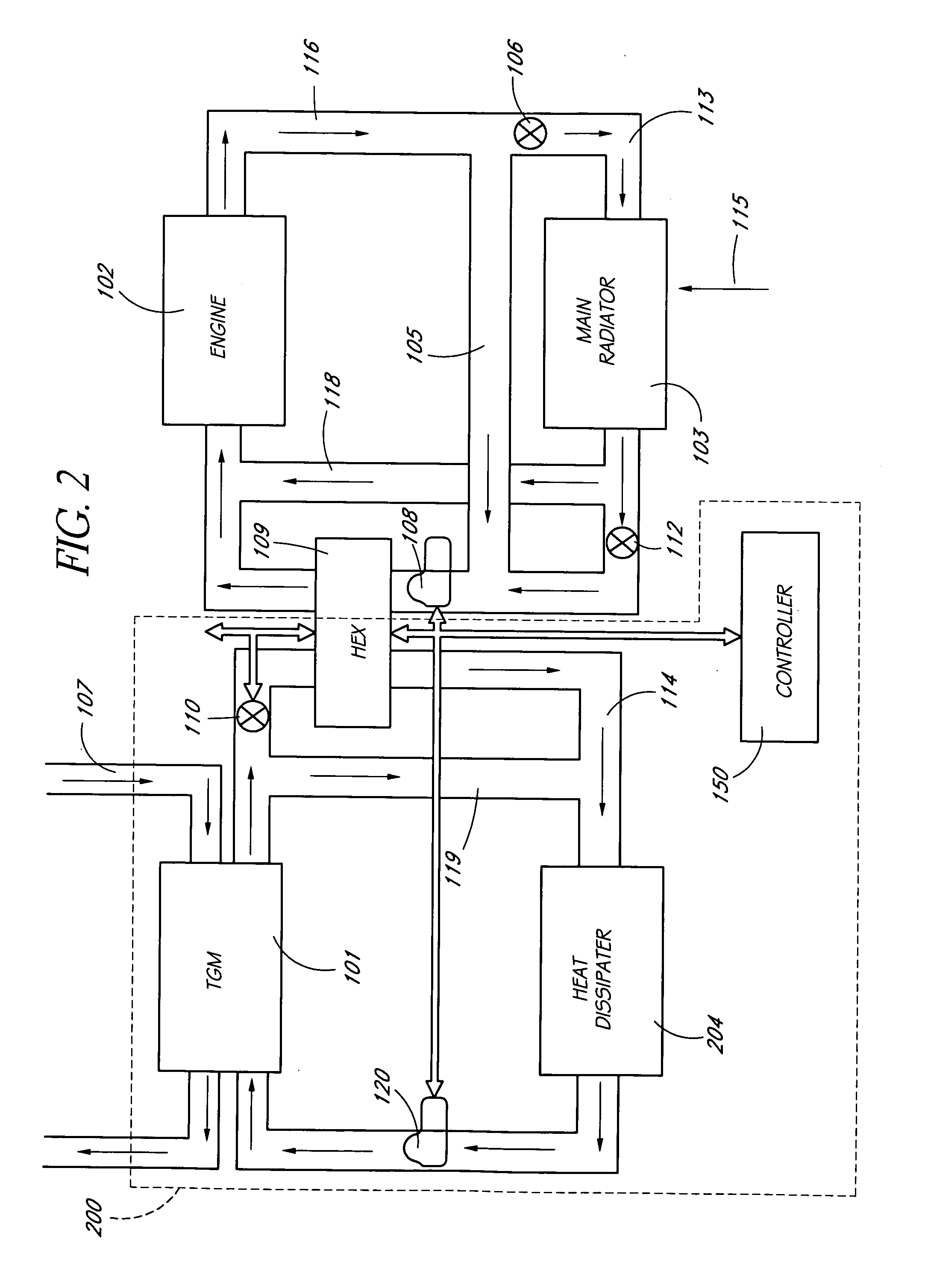Thermoelectric power generator with intermediate loop
a technology of power generator and loop, which is applied in the manufacture/treatment of thermoelectric devices, machines/engines, mechanical equipment, etc., can solve the problems of affecting and affecting the efficiency of waste heat recovery systems. achieve the effect of maximizing the performance of waste heat recovery systems, reducing the number of waste heat generation systems, and improving the control of cold side temperatures
- Summary
- Abstract
- Description
- Claims
- Application Information
AI Technical Summary
Benefits of technology
Problems solved by technology
Method used
Image
Examples
Embodiment Construction
[0025]Automotive waste heat recovery is used as an example of the present invention. However, the invention is applicable to improve the performance of power generation, waste heat recovery, cogeneration, power production augmentation, and other uses. As further examples, the present invention can be used to utilize waste heat in the engine coolant, transmission oil, brakes, catalytic converters, and other sources in cars, trucks, busses, trains, aircraft and other vehicles. Similarly, waste heat from chemical processes, glass manufacture, cement manufacture, and other industrial processes can be utilized. Other sources of waste heat such as from biowaste, trash incineration, burn off from refuse dumps, oil well burn off, can be used. Power can be produced from solar, nuclear, geothermal and other heat sources. Application to portable, primary, standby, emergency, remote, personal and other power production devices are also part of this invention. In addition, the present invention ...
PUM
 Login to View More
Login to View More Abstract
Description
Claims
Application Information
 Login to View More
Login to View More - R&D
- Intellectual Property
- Life Sciences
- Materials
- Tech Scout
- Unparalleled Data Quality
- Higher Quality Content
- 60% Fewer Hallucinations
Browse by: Latest US Patents, China's latest patents, Technical Efficacy Thesaurus, Application Domain, Technology Topic, Popular Technical Reports.
© 2025 PatSnap. All rights reserved.Legal|Privacy policy|Modern Slavery Act Transparency Statement|Sitemap|About US| Contact US: help@patsnap.com



